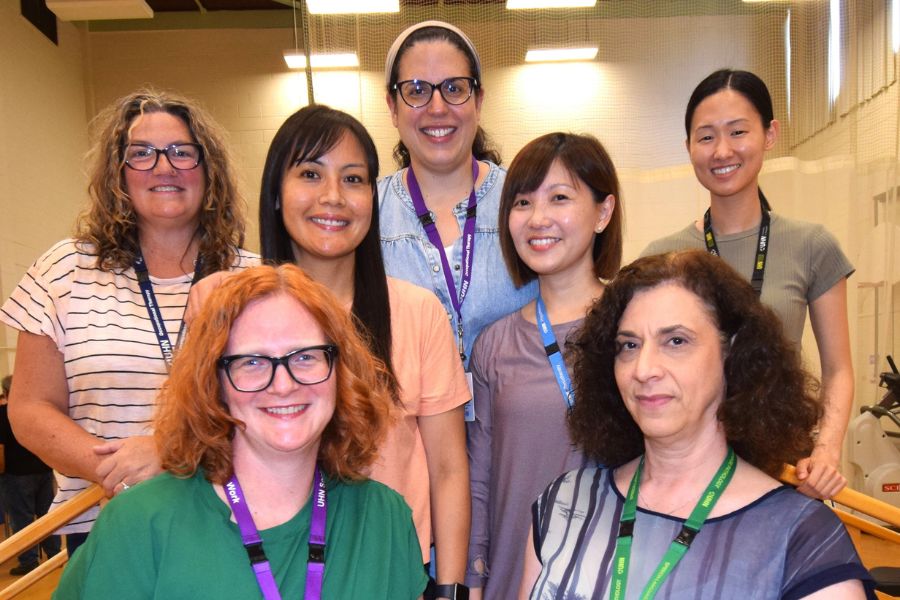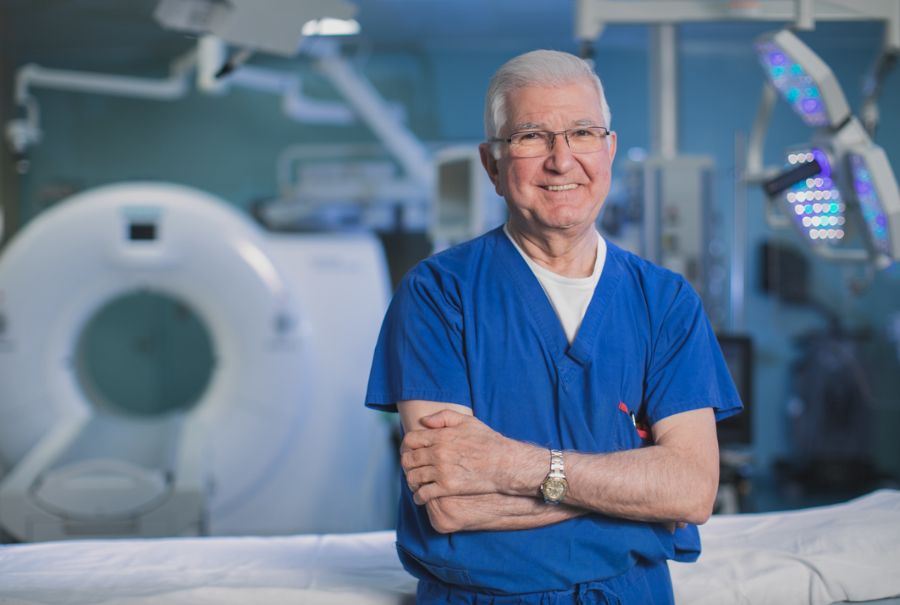“As a trainee, you find cases that really stick with you,” Dr. Abdel-Qadir recalls. “I remember thinking how unfair it was that someone so young already had a failing heart. She’d developed heart disease because she needed chemotherapy to treat a kidney tumour when she was a baby. It cured her cancer, but it left with her with this.”
Now a cardiologist with the Peter Munk Cardiac Centre (PMCC), Dr. Abdel-Qadir is the lead author of a recent study that developed a new and innovative model to help predict the risk of cardiovascular disease in patients with breast cancer. As survival rates improve for early stage breast cancer, post-treatment complications for breast cancer patients can be an area of concern. Prior research shows that cancer treatments may pose a risk to the cardiovascular system, such as narrowing of the blood vessels around the heart or weakening of the heart muscle. However, there was no way to measure the risk of a women developing heart disease post-cancer treatment – so Dr. Abdel Qadir decided to make one.
Alongside his colleagues, including PMCC cardiologists Dr. Douglas Lee and Dr. Dinesh Thavendiranathan, he created a model simple enough for physicians and breast cancer patients to gauge the risk of developing serious heart problems over a five- and 10-year period.
“The emphasis is on how we treat the breast cancer most effectively as well as finding the degree of cardiovascular risk and what we can do to minimize it,” says Dr. Abdel-Qadir. “This could include anything from closer follow-ups, preventative interventions such as rehab or tightening the control of blood pressure and cholesterol.”
Dr. Abdel-Qadir and his team surveyed the health records of almost 90,000 women in Ontario who were diagnosed with breast cancer in 2013 and 2014. Two-thirds of the group were randomly chosen to develop the model, while the remaining third were used to validate the model’s accuracy. After studying the women’s characteristics, a model was created that assigned points based on how old the woman was at the time of diagnosis and her relevant medical history, such as whether she had diabetes, chronic kidney disease or vascular disease. For the majority of women, there is a risk, but the risk is relatively low when compared to the relevance of treating breast cancer.
“The score and associated risk really depend on the person,” says Dr. Abdel-Qadir. “Young women tend to have more aggressive forms of breast cancer and a lower risk of heart disease, and older women tend to have a greater likelihood of developing heart disease.”
Dr. Abdel-Qadir believes that the model’s point system will help patients and doctors make more subjective and informed decisions when weighing the risk of cardiovascular disease. The next step is proving that the model can work elsewhere in the world.
“I’m proud of the makeup in Ontario, however we can’t assume this will work worldwide,” says Dr. Abdel-Qadir. “We would also like to enhance the model to include data such as family history, cholesterol levels and whether a patient smokes.”
Dr. Abdel-Qadir is also working to widen his scope and study how treatment for other cancers can lead to heart disease.


